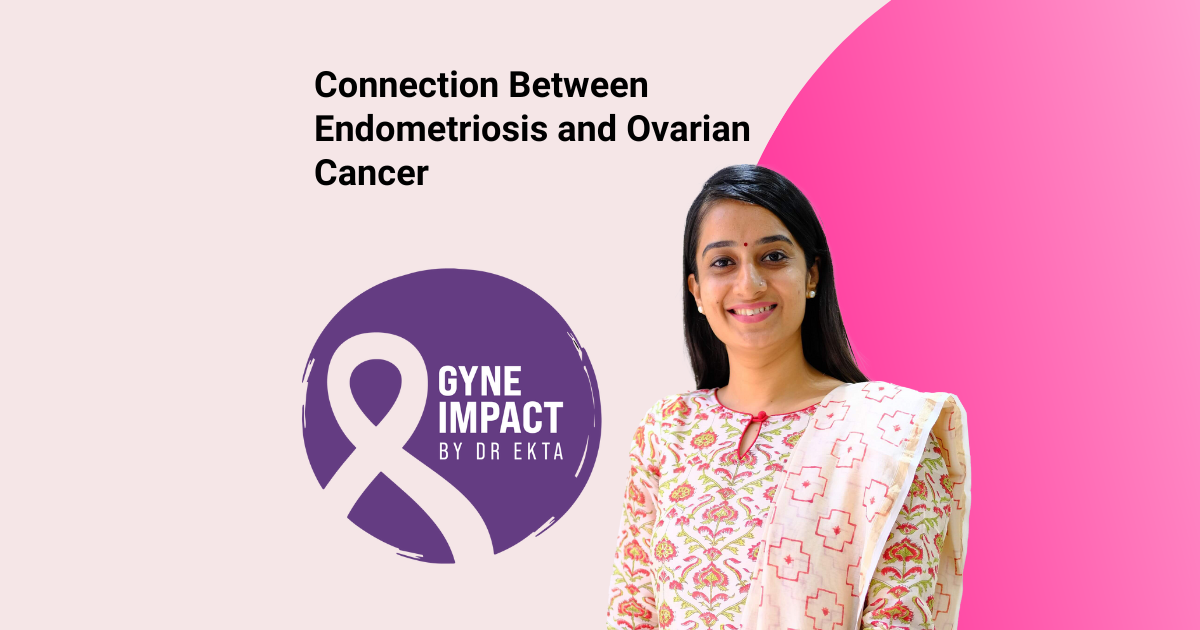Hello everyone Today, I want to discuss an important topic that’s been making headlines recently: the link between endometriosis and ovarian cancer here it’s crucial to understand the nuances for better awareness and health management.
What is Endometriosis?
Endometriosis is a condition where tissue similar to the lining inside the uterus, known as the endometrium, starts to grow outside the uterus. This condition affects over 25 million women in India alone and can be quite painful. The tissue might grow on the ovaries, fallopian tubes, or other organs in the pelvis. The primary symptoms include
- Painful periods
- Pelvic pain
- Infertility.
The Connection with Ovarian Cancer
According to the study, women with endometriosis have a 4.2 times higher risk of developing ovarian cancer compared to those without the condition. This is a substantial increase in risk and certainly warrants attention.
The study also highlighted that severe forms of endometriosis, such as deep infiltrating endometriosis or ovarian endometriomas (cysts in the ovaries), present an even higher risk.
For women with these severe forms, the risk of ovarian cancer can increase up to 18.8 times. Specifically, women with severe endometriosis are nearly 19 times more likely to develop type I ovarian cancer, which is a slower-growing form of the disease.
However, it’s essential to keep these figures in perspective. Ovarian cancer remains relatively rare overall. Even with the increased risk, there are still only 10 to 20 additional cases of ovarian cancer per 10,000 women with endometriosis.
What Should You Do?
The findings from this study underscore the importance of awareness rather than immediate changes in clinical care. Here’s what I recommend:
Stay Informed: Understanding the symptoms of ovarian cancer, such as persistent bloating, abdominal pain, and changes in bowel or bladder function, is crucial. Awareness can help in early detection and timely intervention.
Regular Check-ups: Regular gynecological check-ups are essential. If you have endometriosis, make sure to keep up with your doctor’s appointments and discuss any new or worsening symptoms.
Healthy Lifestyle Choices: Maintaining a healthy lifestyle can help manage endometriosis and possibly reduce cancer risk. This includes regular exercise, not smoking, and limiting alcohol consumption.
Contraceptive Pills: For women with endometriosis, oral contraceptive pills have been shown to reduce the risk of ovarian cancer by 50%. If you’re on these medications, discuss their benefits and risks with your healthcare provider.
Consider Your Options: For those with severe endometriosis who have completed childbearing, discussing surgical options with your doctor might be prudent. This can be a way to manage symptoms and potentially reduce cancer risk.
Seek Counseling: If you have severe endometriosis, consider seeking counseling to understand your increased risk and explore your options with a healthcare professional.
while endometriosis does increase the risk of ovarian cancer, it’s important not to panic. The increased risk, though significant, still means that ovarian cancer remains relatively uncommon. The key is awareness, regular medical check-ups, and making informed choices about managing your health.
If you have endometriosis or any concerns about ovarian cancer, please reach out to your healthcare provider. We’re here to support you and ensure you have the best information and care possible.
Stay informed and take proactive steps for your health!

